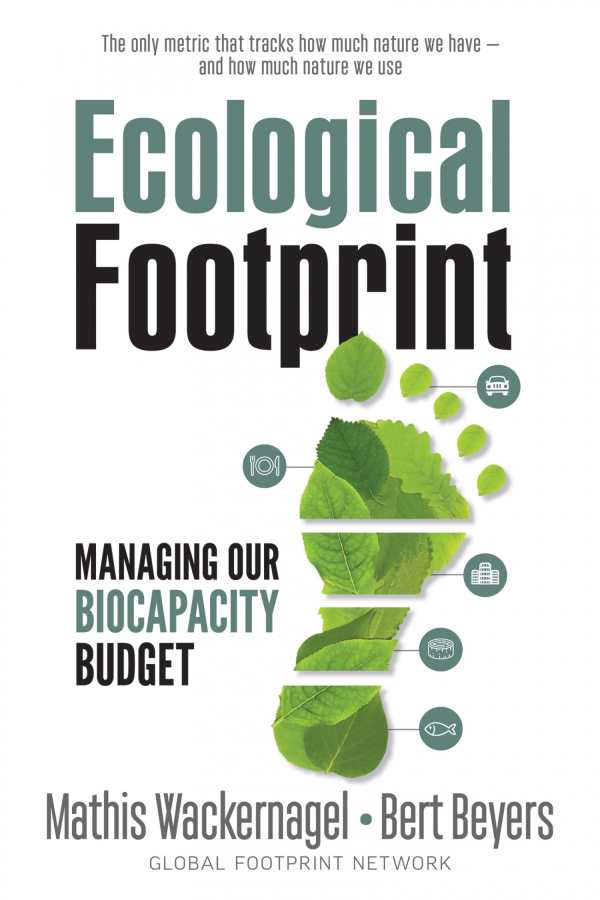It looks like you've stumbled upon a page meant to be read by our code instead of viewed directly. You're probably looking for this page.
Ecological Footprint
Managing Our Biocapacity Budget
- 2019 INDIES Finalist
- Finalist, Ecology & Environment (Adult Nonfiction)
While grave concern for the world’s environment is often expressed, “biocapacity”—the planet’s ability to regenerate and support the needs of living things––is less often discussed in specific, measurable terms. Mathis Wackernagel and Bert Beyers’s fascinating Ecological Footprint does the related work of examining and analyzing humanity’s impact on the Earth.
Wackernagel (with William Rees) developed the notion of an ecological footprint in the early 1990s to “measure the availability of nature, but also human demand on it.” This book compares the footprint to a financial accounting tool, measuring the amount of nature that is drawn upon by any person, organization, physical structure, or city.
Beginning with a plain overview of the ecological footprint that demonstrates how it is applied, the book next tackles the important subject of overshooting, or using more resources than the Earth can sustain. Global overshoot becomes the defining central challenge, and the remainder of the book discusses this in an eloquent way. The text views the challenge “from the perspective of biocapacity,” not limited by narrower concepts like the carbon footprint.
The book concentrates on specific examples over general theory, moving through footprint calculation examples for individuals, cities, countries, products, and companies. One intriguing chapter assesses architecture and city planning, discussing projects like Mazdar City, an ecocity development by the United Arab Emirates, while another devotes its attention to the footprints of China and Africa and their natural resources consumption.
Its examples documented with care, Ecological Footprint offers astute observations and recommendations for global improvement.
Reviewed by
Barry Silverstein
Disclosure: This article is not an endorsement, but a review. The publisher of this book provided free copies of the book to have their book reviewed by a professional reviewer. No fee was paid by the publisher for this review. Foreword Reviews only recommends books that we love. Foreword Magazine, Inc. is disclosing this in accordance with the Federal Trade Commission’s 16 CFR, Part 255.
